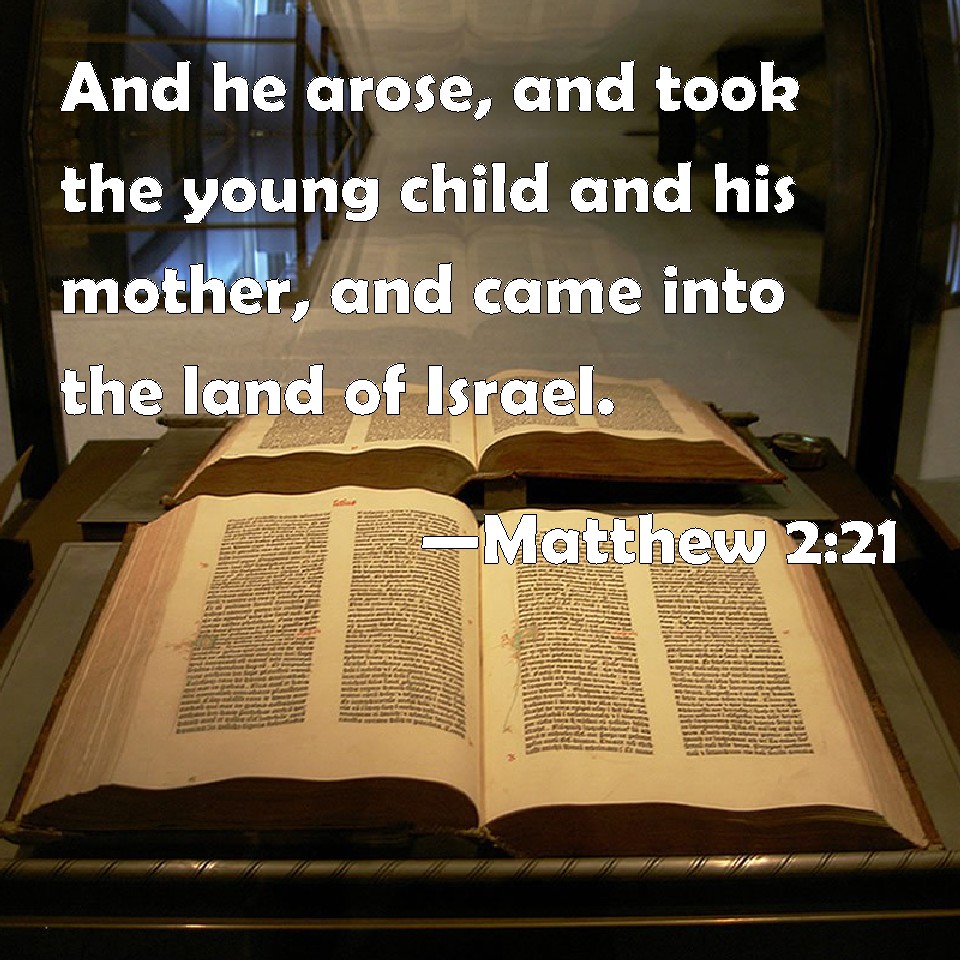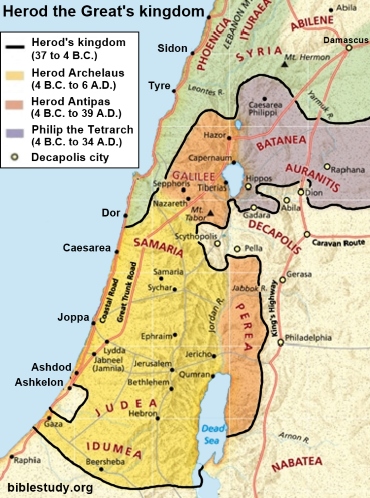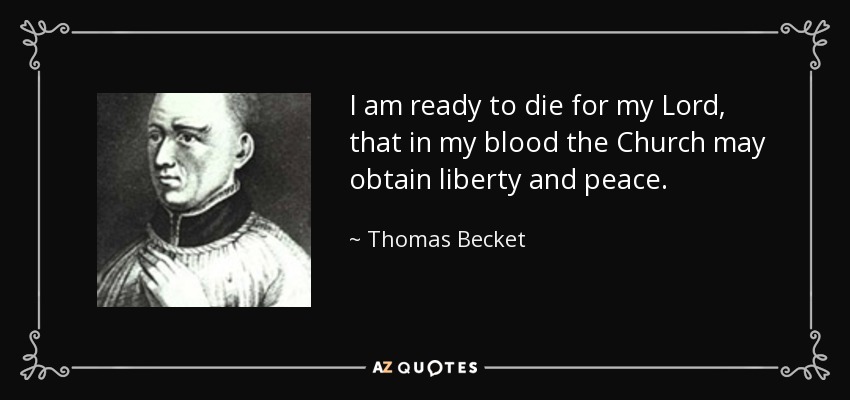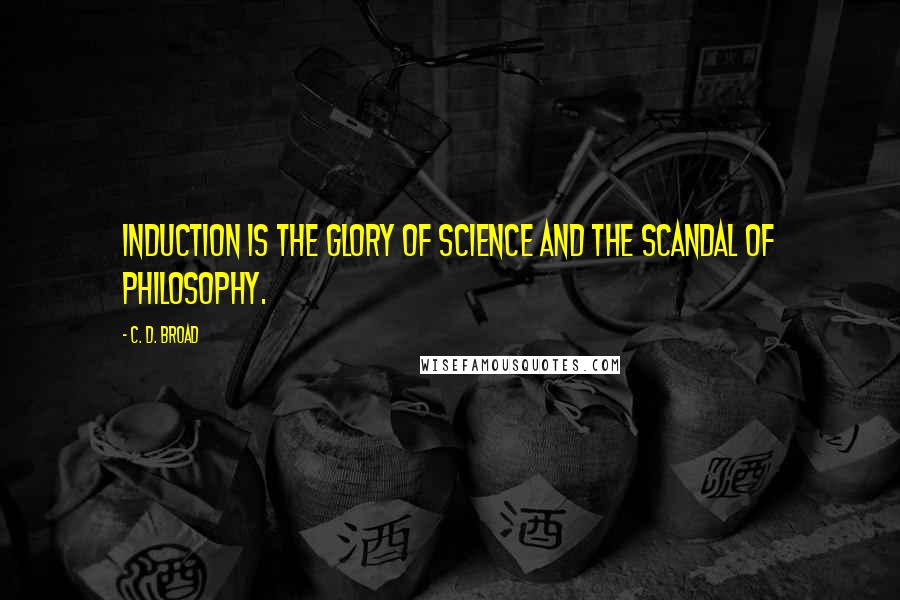Danica Mckellar
Find
Design
寻找设计
Xúnzhǎo shèjì
デザインを見つける
Dezain o mitsukeru
ps119.1+
Find consilio
Happy are those who walk in the law
with the benign design of the natural draw.
Civility is accord with the rightness of truth for security.
Instruction in defense directs action for maturity.
The least force necessary to resolve a crisis
is economic and instructive for credible license.
Logic for the function of service to the public
is unction that serves work that is productive for uplift.
Administration for economic benefit
is the purpose that organizes action in the genesis
of value that defeats the influence of the degenerate deficit.
How is this supposed to work?
If I shake it will it go berserk?
Happy are those who walk in the way
that orders steps for goodness in the night or day.
The goal to do no wrong
is as strong as the length of long
that learns from error to sing our song.
Precepts are ordered to anticipate mastery in command
to win the struggle to overcome the dictum of detrimental demand.
The demand for radical change
is the reason that this discourse seems strange.
That which is wanted in the weight of their speech
is supplied by the aptness of the undecided to believe.
The radicals want to change everything for them.
They would overthrow the state of the union for their dictum.
Opposition to the radical insists on regression
though the need for reform stands as a profession.
Moral polity is directed to conservative reform.
Even good change is inconvenient to the status formed.
I will order my ways to be steadfast
in keeping the statutes cast
from the experience of goodness in the past
for the benefit of the future asked.
My eyes are fixed on the commandments
for the enchantment of advancement.
I will praise you with an upright heart
when my precedents are ordered for the art
of the smart chart for profit from the mart.
I will observe the benefit of divine energy
in the reverie of synergy in the sensory.
The name Syncletica means to work with the call
that reflected the life of Adam prior to the Fall.
The ascetic life taught prayer through abstinence
for moderation in the consumption of accident
or tactlessness.
How can young people work to purify the heart?
Human nature is the garden that needs to be cultivated from the start.
Experience has a broadness that reaches beyond the personal
but consequence holds the person accountable to the endurable.
Prayer seeks an answer to the contemplation of the word
insofar as logic with reason can rule out the absurd
to find the ability to function in situations that occur.
Scripture is a word that helps to consider the past
with the appeal to relation in the community designed for the task.
Law is the template to judge the morality of behavior
with respect for good polity as a sign of divine favor.
I will not stray from the path set by the commandments
as it is a course that my heart will seek for enhancement
with respect for age in advancement.
I treasure the word with my mind
that the discovery of wisdom will find
a way that does not sin as seen or as blind
Blessed is the Creator of the seen and unseen
who provides the answer to prayer to keep the machine
clean with a functional glean.
I will declare that which warrants the statement
when my experience reveals the value of the placement.
I delight in the sight of Your revelation
as a sign of the divine delight in the celebration
of refinement in sublime insight for the striation
of the station in sensation with respect for location.
The interlocking precepts of interlocutors
will help me to see beyond the scope of the monocular.
I will meditate on the value of variant views
to fix my eyes on the best of what is true
for me in relation to You.
I will delight in the education You provide.
I will not forget Your word as my guide.
The Provider who provided providence
has also given reason for guidance
to the profit of trade alliance
with the logic of evidence for defense
without cruelty, violence
or deceptive contrivance
Open my eyes to behold
the wonder of things that unfold
as a vicarious experience told
that converts the imagination to gold
in the anticipation of actions bold.
I have lived as an alien to the grandness of the land.
Do not hide the benefits of Your providential plan.
My soul is consumed with desire
for the consumption of my spirit with fire.
I long for the ordinance of order
that will delineate the boundaries for the border.
You rebuked the insolence of the accursed
who nursed the curse of the thirst to coerce.
Send their scorn and contempt away
that their hostility may be replaced with the right way
to look at life as a functional play.
Even though elected politicians may plot against me,
I will seek the policy of good polity for responsibility
with liberty in the law You can see.
Your words provide instruction for induction.
I delight in the degrees of unction in fluxion.
The venerable old man had a good attitude.
He saw mystery as invitation to find knowledge with gratitude.
The faithful of Israel will be restored.
The blind will be able to see the glory of the Lord.
The ignorant will understand the meaning of the Word.
The lame will rejoice in the ability to get past the absurd.
Order has become the father to Israel.
Ephraim will no longer espouse vitriol.
The faithful will be respected as firstborn.
The firstborn will not lead the descent into scorn.
Cleopatra provided refuge for those who fled from Herod's Judea.
The gospel of Matthew reports that Joseph fled there with Mary and Jesus.
Out of Egypt the son was called after the death of Herod.
He was taken to the land of Israel to Mary's home inherited.
Nazareth was a town of Galilee in her hills.
Jesus grew as a Nazorean in the prophecy fulfilled.
Blessed be the Father of our beloved Jesus Christ
who has blessed us from the heavenly heights.
We were chosen in Christ before the foundation of the world
to be holy and blameless in love with wonders by the Spirit whirled.
We were destined for adoption as children through Christ
according to the praise of the glorious grace bestowed by his sacrifice.
----------------------
Aleph
1st letter
Beati inmaculati
Blessed undefiled
1 Happy are those whose way is blameless,
who walk in the law of the Lord.
2 Happy are those who keep his decrees,
who seek him with their whole heart,
3 who also do no wrong,
but walk in his ways.
4 You have commanded your precepts
to be kept diligently.
5 O that my ways may be steadfast
in keeping your statutes!
6 Then I shall not be put to shame,
having my eyes fixed on all your commandments.
7 I will praise you with an upright heart,
when I learn your righteous ordinances.
8 I will observe your statutes;
do not utterly forsake me.
Beth
2d letter
In quo corrigit
How can
9 How can young people keep their way pure?
By guarding it according to your word.
10 With my whole heart I seek you;
do not let me stray from your commandments.
11 I treasure your word in my heart,
so that I may not sin against you.
12 Blessed are you, O Lord;
teach me your statutes.
13 With my lips I declare
all the ordinances of your mouth.
14 I delight in the way of your decrees
as much as in all riches.
15 I will meditate on your precepts,
and fix my eyes on your ways.
16 I will delight in your statutes;
I will not forget your word.
Gimel
3d letter
Tribue servo tuo
Give your servant
17 Deal bountifully with your servant,
so that I may live and observe your word.
18 Open my eyes, so that I may behold
wondrous things out of your law.
19 I live as an alien in the land;
do not hide your commandments from me.
20 My soul is consumed with longing
for your ordinances at all times.
21 You rebuke the insolent, accursed ones,
who wander from your commandments;
22 take away from me their scorn and contempt,
for I have kept your decrees.
23 Even though princes sit plotting against me,
your servant will meditate on your statutes.
24 Your decrees are my delight,
they are my counselors.
----------------------
================
-----------------------
How does this work?
Chn. 这是如何运作的?
Zhè shì rúhé yùnzuò de?
Jpn. これはどのように作動しますか?
Kore wa dono yō ni sadō shimasu ka?
Krn. 이것은 어떻게 작동합니까?
igeos-eun eotteohge jagdonghabnikka?
Ltn. Quid opus est hoc?
Itn. Come funziona?
Grk. Πως λειτουργεί αυτό?
Pos leitourgeí aftó?
Spn. ¿Como funciona esto?
Frn. Comment cela marche-t-il?
Gmn. Wie funktioniert das?
Dth. Hoe werkt dit?
Hgn. Hogy működik ez?
Trk. Bu nasıl çalışıyor?
Rsn. Как это работает?
Kak eto rabotayet?
How is this supposed to work?
Will it go berserk if I give it a jerk?
---------------------------
Psalm 119
Psalm 119 has 176 verses divided into 22 stanzas. There is one stanza for each of the 22 characters that make up the Hebrew alphabet. Each of the eight verses of each stanza begins with the same letter in the Hebrew text.
This feature was not maintained in the Septuagint, but the name of the corresponding Hebrew letter was placed at the beginning of each stanza. The first has alef. The last has taw.
This psalm is one of about a dozen alphabetic acrostic poems in the Bible. The name of God (Yahweh/Jehovah) appears twenty-four times.
The acrostic form combined with the use of the Torah words constitute the framework for an elaborate prayer. The grounds for the prayer are established in the first two stanzas (alef and beth).
The Torah is held up as a source of blessing and right conduct. The psalmist pledges to dedicate himself to the law.
The prayer in the expression begins in the third stanza (gimel, v. 17). This prayer includes dramatic lament (e.g. verses 81-88), joyous praise (e.g. verses 45–48) and prayers for life, deliverance and vindication (e.g. v. 132-34). The combination of forms is like many other psalms
The uniqueness of Psalm 119 is found in the way that the requests are continually and explicitly grounded in the gift of the Torah and the psalmist's loyalty to it.
The first and fifth verses in a stanza often state the same theme followed by a statement of opposition, affliction or conflict. The final (eighth) verse tends to be a transition introducing the next stanza.
Aleph is the first letter of the Semitic abjads. It includes the Phoenician ʾālep 𐤀, Hebrew ʾālef א, Aramaic ʾālap 𐡀, Syriac ʾālap̄ ܐ and Arabic alif ا. It also appears as South Arabian 𐩱 and Ge'ez ʾنlef አ.
These letters are believed to have derived from an Egyptian hieroglyph depicting an ox's head. The Phoenician variant gave rise to the Greek alpha (ء), the Latin A and Cyrillic ہ.
The name aleph is derived from the West Semitic word for "ox". The shape of the letter derives from a Proto-Sinaitic glyph that depicts an ox's head. The glyph may have been based on an Egyptian hieroglyph.
The modern Arabic form literally means 'tamed' or 'familiar.' The same root in modern Hebrew can mean 'trained' when applied to pets or 'tamed' when referring to wild animals.
The Egyptian "vulture" hieroglyph is also referred to as aleph.
Beth is the second letter of the Semitic abjads. It includes the Phoenician Bēt, Hebrew Bēt ل, Aramaic Bēth, Syriac Bēṯ ܒ and Arabic Bāʾ.
The Phoenician letter gave rise to, among others, the Greek Beta, Latin B and Cyrillic ء, آ.
The name bet is derived from the West Semitic word for "house". The shape of the letter derives from a Proto-Sinaitic glyph which depicts a house.
Gimel is the third letter of the Semitic abjads. The variants include Phoenician Gīml, Hebrew ˈGimel ג, Aramaic Gāmal, Syriac Gāmal ܓ and Arabic ǧīm ج . The letter may have been named after a weapon that was either a staff sling or a throwing stick in the hypothetical Proto-Canaanite form.
The Phoenician letter gave rise to the Greek gamma ( Γ , γ), the Latin C and G and the Cyrillic (C, c pronounced s) .
-----------------------
Love
Jeremiah 1:1-3 identifies the book as "the words of Jeremiah son of Hilkiah".
The Book of Jeremiah contains a considerable amount of material of a biographical and historical nature in addition to the prophet's own words. This material is especially valuable because it reveals the personality of the prophet more clearly than any of the other prophetic books.
The period in which Jeremiah lived was one of the most critical in Hebrew history. His public ministry began during the reign of King Josiah (640-609 BCE).
The background to Jeremiah is briefly described in the introduction to the book. Jeremiah began his prophetic mission in the 13th year of king Josiah (c. 627). His work was finished in the 11th year of king Zedekiah (586) "when Jerusalem went into exile in the sixth month."
One of the important events that took place a few years after Jeremiah began his prophetic work was the discovery of the book of the law in the Temple at Jerusalem. The main part of this work is now called the Book of Deuteronomy.
It was declared to be the word of Yahweh. King Josiah made it a part of the law of the land.
Jeremiah was enthusiastic about King Josiah's decision. The law was intended to correct the social injustice that prevailed in the land. Practice associated with concession to foreign rule was seen as the cause for the injustice. Faithfulness to the law would protect the worship of Yahweh from contamination by the heartless influences from external forms.
The Deuteronomic reformation was a major change that had difficulty taking hold even according to the judgment of the kings who were being held accountable for their decisions regarding religious observance.
The good kings did not advocate participation in the rites of the longstanding polytheistic cults. They were brave in the proclamation of faith in the one God. They dedicated their service to the people of the land. They were judged to be faithful.
The bad ones saw participation in polytheistic rites as part of being vassals to the king of kings in the Middle East.
The collection of writings that make up the Book of Jeremiah includes oracles, addresses, prayers and exhortations made by the prophet.
The text is interspersed with materials that, though relevant to Jeremiah's work, were contributed by other persons. The material is arranged without strict topical or chronological order.
The authentic oracles of Jeremiah are probably to be found in the poetic sections of chapters 1-25. The book as a whole has been heavily edited. The prophet's followers including his scribe Baruch and later generations of Deuteronomists added material.
Chapters 1-10 describe how Jeremiah was called to prophesy. He warned Judah about the consequences for participation in the sin of the polytheistic religion. Judeans were criticized for their faithlessness.
Jeremiah felt that it was necessary to undermine the trust that people placed in external objects. The prophet declared that the day was coming when the Temple would be destroyed. The ark of the covenant would be taken away. The nation that called itself the chosen of Yahweh would be taken into captivity.
These statements aroused the anger of the priests and King Jehoiakim.
Jeremiah was charged with treason. He would probably have been put to death had not some of his friends succeeded in hiding him until the wrath of his enemies subsided.
Jeremiah dictated a series of oracles in which the policies of King Jehoiakim and his subordinates were severely criticized when it was no longer considered safe for him to appear in public.
Warnings were given concerning what would happen if the practices and the policy that preceded the Old Covenant were not changed.
Chapters 11-26 warned of the destruction that would be poured out on Judah. The constant worship of false idols and the sacrifices that were offered to them were cited as the cause for the anger of God.
Chapters 26-29 contain biographic material and interaction with other prophets.
Chapters 30-38 proclaim God's promise of restoration including Jeremiah's "new covenant".
The covenant has been interpreted differently from Christianity by Judaism.
The description in this section reported that the prophet had been lowered into a cistern as punishment for his prophesy regarding the fall of Jerusalem.
The prophet had also challenged the religious hypocrisy, economic dishonesty and oppressive practices of Judah’s leaders.
King Zedekiah eventually ordered him to be released from the well which the officials had placed him in as an alternative to the death penalty which they said his prophesy warranted.
Jeremiah contended that humans cannot change their nature by themselves. Such reform can occur only through cooperation with the one God.
Yahweh can act on human hearts only when humans recognize their need for it. The value for reform decreed by law had to be understood to be accepted.
Inner transformation in human nature was needed for the success of the reformative movement.
The Old Covenant was based on laws that were decreed as far back as the time of Moses. It was a contract or agreement between Yahweh and the Israelites in which the people agreed to obey all of the commandments given to them.
The Israelites did not live up to the terms of that agreement. Jeremiah believed that he knew the principal reasons why they had not done so. The wrongful motives of evil desire were ingrained as part of their human nature.
The only thing that could bring about a right relationship with Yahweh would be a change of heart. This change would create a new nature. Such a thing was unattainable except by means of the New Covenant in which Yahweh promised to do for the Israelites that which they could not do for themselves.
Chapter 31 spoke to the New Covenant.
Jeremiah 31:7-9
Thus says the LORD:
Sing aloud with gladness for Jacob
and raise shouts for the chief of the nations;
proclaim, give praise and say,
'Save, O LORD, you people,
the remnant of Israel.'
'See, I am going to bring them from the land of the north
and gather them from the farthest parts of the earth
among them the blind and the lame,
those with child and those in labor together.
'A great company shall return.
With weeping they shall come
and with consolations I will lead them back.
I will let them walk by brooks of water
in straight path in which they shall not stumble.
'I have become a father to Israel
and Ephraim is my firstborn.'
----------------------
The faithful of Israel will be restored.
The blind will be able to see the glory of the Lord.
The ignorant will understand the meaning of the Word.
The lame will rejoice in the ability to get past the absurd.
Order has become a father to Israel.
Ephraim will no longer espouse vitriol.
The faithful will be respected as my firstborn.
The firstborn will not lead the descent into scorn.
=================
Jeremiah's prophetic ministry lasted until sometime after the fall of Jerusalem and the beginning of the Babylonian captivity. He encountered strong opposition from King Jehoiakim (609-598) and King Zedekiah (597-586). His life was threatened on more than one occasion.
The Babylonians permitted him to remain in his homeland. Many of his fellow countrymen were taken into captivity. He was taken to Egypt against his will by a group of exiles who found it necessary to flee Jerusalem for their own safety.
Jeremiah died in Egypt after a long and troublesome career.
Jeremiah's teaching had a profound effect on the development of both Judaism and Christianity. Many passages in the Christian scriptures indicate that both Jesus and Paul not only accepted certain ideas from Jeremiah but gave them a central place in their own interpretations of the meaning of religion.
-----------------------------
Introductory Blessing
Ephesus
Ephesus was an ancient Greek city on the coast of Ionia. It was located 3 kilometers (1.9 miles) southwest of present-day Selחuk in İzmir Province, Turkey.
It was built by Attic and Ionian Greek colonists in the 10th century BCE on the site of the former Arzawan capital. Arzawa was the western neighbor and rival of the Middle and New Hittite Kingdoms in Anatolia from the 15th to the 13th centuries.
The capital of the Kingdom of Arzawa was Apasa, the location that would be rebuilt as Ephesus. The Achaeans of Mycenaean Greece and Arzawa formed a coalition against the Hittites in various periods.
It was one of the twelve cities of the Ionian League during the Classical Greek era (5th and 4th centuries). This period saw the annexation of much of modern-day Greece by the Persian Empire and its subsequent independence.
Classical Greece had a powerful influence on the Roman Empire and on the foundations of Western civilization. Modern Western politics, artistic thought in architecture and sculpture, scientific thought, theater, literature and philosophy originated during this period of Greek history.
The Temple of Artemis was completed around 550. It became one of the Seven Wonders of the Ancient World.
Artemis was the goddess of the hunt, the wilderness, wild animals, the Moon and chastity.
She was the daughter of Zeus and Leto and the twin sister of Apollo. She was the patron and protector of young girls.
She was one of the most widely venerated of the Ancient Greek deities. Her symbols were a bow and arrow, a quiver and hunting knives. The deer and the cypress were sacred to her. The goddess Diana was her Roman equivalent.
Two temples to Artemis had been destroyed on the site. One was ruined by a flood in the 7th century. The other was burned by arson in the 5th century. The greatest and last form was funded by the Ephesians.
The new temple was sponsored by Croesus, the founder of the Lydian empire and overlord of Ephesus.
It was designed and constructed from around 550 BC by the Cretan architect Chersiphron and his son Metagenes. It was 115 m (377 ft) long and 46 m (151 ft) wide, supposedly the first Greek temple built of marble.
Its peripteral columns stood some 13 m (40 ft) high, in double rows that formed a wide ceremonial passage around the cella that housed the goddess's cult image. Thirty-six of these columns were decorated by carvings in relief.
Heraclitus deposited his book "On Nature" as a dedication to Artemis in the great temple.
Among other monumental buildings were the Library of Celsus and a theater capable of holding 25,000 spectators.
Ephesos was one of the seven churches of Asia that are cited in the Book of Revelation.
The western portion of Asia Minor was known as the Roman province of Asia in the time of the apostles.
Ephesus was a great commercial center. Its harbor was crowded with ships. Its streets were thronged with people from every country. It presented a promising field for missionary effort like Corinth.
The city was a popular center for the worship of Diana. The fame of the magnificent temple of "Diana of the Ephesians" extended throughout all Asia and the world. Its splendor made it the pride of the nation.
The idol within the temple was declared by tradition to have fallen from the sky. Symbolic characters were inscribed upon it. The characters were believed to possess great power. Books had been written by the Ephesians to explain the meaning and use of these symbols.
Many magicians who wielded a powerful influence over the minds of the superstitious worshipers of the image within the temple were among those who gave close study to these costly books.
The magicians of those times have their counterpart in the spiritualistic mediums, the clairvoyants and the fortune-tellers of today. The mystic voices that spoke at Endor and at Ephesus are still misleading the superstitious.
Paul dealt with the magicians and soothsayers in Ephesus while struggling with state offices and pagans. The church was established and strengthened by his diligent labor. The city became the third important city of Christianity after Jerusalem and Antioch in a short time.
Ephesians
The letter to the Ephesians is the 10th book of the New Testament. The authorship is attributed to someone influenced by Paul's thought.
The Apostle Paul wrote the letter sometime around 62 CE while he was in prison in Rome according to tradition. This was about the same time as the epistle to the Colossians had been written. The two letters are similar in many points.
The letter's characteristically non-Pauline syntax, terminology and eschatology suggest a date about 20 years after the death of Paul.
Most English translations indicate that the letter was addressed to "the saints who are in Ephesus" (1:1). The words "in Ephesus" do not appear in the best and earliest manuscripts of the letter.
Marcion was a second-century heresiarch who created the first New Testament canon. He believed that the letter was actually addressed to the church at Laodicea.
The letter lacks personal greetings or any indication that the author has personal knowledge of his recipients. Paul had stayed in Ephesus for more than 2 years (Acts 19:1;20:1).
The introduction to the letter implies that Jesus is the Son of God, but it artfully refers to him as Christ. The implication that Christ was the Son was drawn out theologically at a later time.
Ephesians 1:3-6
Blessed be the God and Father of our Lord Jesus Christ, who has blessed us in Christ with every spiritual blessing in the heavenly places, just as he chose us in Christ before the foundation of the world to be holy and blameless before him in love. He destined us for adoption as his children through Jesus Christ according to the good pleasure of his will to the praise of his glorious grace that he freely bestowed on us in the Beloved.
----------------------
Blessed be the Father of our beloved Jesus Christ
who has blessed us from the heavenly heights.
We were chosen in Christ before the foundation of the world
to be holy and blameless in love with wonders by the Spirit whirled.
We were destined for adoption as children through Christ
according to the praise of the glorious grace bestowed by his sacrifice.
=================
Nazorean
The name Judea is the English adaptation of the Greek Ioudaia. The Latin form was Iudaea. The contemporary English form is "Judah."
Judah was the 4th son of Jacob and Leah. HIs name means "thanksgiving" or "praise."
Yehudah was the name for an Israelite tribe. David was born to the tribe. He was the first king for the kingdom of that name. Saul was the first king for Israel and Judah.
The ancient Kingdom of Judah was derived from the tribal name. The kingdom existed from 934 until 586 BCE.
The name for the region continued to be incorporated through the Babylonian conquest, Persian, Hellenistic and Roman periods. The variants were Yehud, Yehud Medinata, Hasmonean Ioudaia and Roman Iudaea.
Iudea with Herod
Herod was born around 73 BCE in Idumea, south of Judea. Herod's father, Antipater was by descent an Edomite whose ancestors had converted to Judaism. Herod was raised as a Jew.
Herod's rise to power is largely due to his father's good standing relation with Julius Caesar, who entrusted Antipater with the public affairs of Judea.
John Hyrcanus II was the Hamonean King of Judea for one year (67-66 BCE), then the ethnarch (ruler) of Judea probably from 47-40 BCE. He had once summoned Herod to stand trial for murder. Herod determined to punish him for the action.
Herod was appointed provincial governor of Galilee in ca. 47 BCE when he was about 28 years old. He farmed the taxes of that region for the Roman Senate. He met with success in ridding the area of bandits.
Antipater's elder brother, Phasael, served as governor of Jerusalem. The young Herod cultivated a good relationship with Sextus Caesar, the acting Roman governor of Syria. Sextus appointed Herod as general of Coelesyria and Samaria.
He enjoyed the backing of Rome, but the reports of his brutality were condemned by the Sanhedrin.
Herod and his brother Phasael were named as tetrarchs by the Roman leader Mark Antony in 41 BCE to support John Hyrcanus II.
Antigonus, Hyrcanus' nephew, took the throne from his uncle in alliance with the Parthians. Herod fled to Rome to consult with the Romans about the restoration of Hyrcanus II to power.
Pompey the Great had conquered Jerusalem in 63 BCE. This placed the region in the Roman sphere of influence. Herod was unexpectedly appointed King of the Jews by the Roman Senate in Rome around 40 BCE.
Herod went back to Judea to win his kingdom from Antigonus. He married the grandaughter of Hyrcanus II, Mariamne I, near the end of the campaign. Mariamne was also the niece of Antingonus.
The marriage was an attempt to win favor with the Jewish population. Herod was already married to Doris. They had a son, Antipater. Doris and her son were banished to make room for Herod's next move in his rise to power.
Herod set out with a large army to capture Jerusalem with Sosius, the governor of Syria, in 37 BCE. Antigonus was sent to Marc Antony for execution. Herod took the title of basileus (Βασιλεύς, "king") as the sole ruler of Jerusalem. He ended the Hasmonean dynasty and started the Herodian.
John Hyrcanus had conquered the region of Idumaea, the Edom of the Hebrew Bible, in a campaign that lasted from 140-130 BCE. He had required all Idumaeans to obey Jewish law or to leave. Most Idumaeans converted. A number of them intermarried with the Jews and adopted their customs. This meant that the males had to be circumcised.
It was thought that while Herod had complied with the external customs, his political actions were reckless or decadent. It was reported that he executed several members of his own family, including his wife Mariamne I.
Herod's rule marked a new beginning in the history of Judea. Judea had been ruled autonomously by the Hasmonean kings from 140 until 63 BCE.
The Hasmonean kings retained their titles, but became clients of Rome after the conquest by Pompey in 63 BCE.
Herod overthrew the Hasmonean Antigonus in the 3-year-long war between 37 and 34 BCE. He ruled under Roman overlordship until his death ca. 1 CE. When he passed on the throne to his sons it established the Herodian dynasty.
Herod was granted the title of "King of Judea" by the Roman Senate in 40 BCE. He was a vassal of the Roman Empire. He was expected to support the interests of his Roman patrons as such.
His rule faced 2 threats when he obtained leadership in Judea. The first threat came from his mother-in-law Alexandra, who sought to regain power for her family, the Hasmoneans.
Cleopatra married the Roman leader Antony in the same year. Alexandra asked Cleopatra for aid in making Aristobulus III the High Priest.
Aristobulus III might partially repair the fortunes of the Hasmoneans if made High Priest. Cleopatra presented the request to Antony but urged Alexandra to leave Judea with Aristobulus III and visit Antony.
Herod received word of this plot. He feared that if Antony met Aristobolus III in person he might name Aristobulus III King of Judea. This threat induced Herod to order the assassination of Aristobulus in 35 BCE. This ended this first threat to Herod's throne.
Antony's marriage to Cleopatra in 37 BCE also sparked a power struggle between Roman leaders Octavian, who would later be called Augustus, and Antony.
Herod owed his throne to Rome. He had to pick a side. He chose Antony.
Antony lost to Octavian at Actium in 31 BCE. This posed a second threat to Herod's rule. Herod had to regain Octavian's support if he was to keep his throne.
Herod convinced Octavian at Rhodes in 31 BCE that he would be loyal to him through his ability to keep Judea open to Rome as a link to the wealth of Syria and Egypt and his ability to defend the frontier.
Herod continued to rule his subjects as he saw fit. Restrictions were placed upon him in his relations with other kingdoms despite the autonomy afforded to Herod in his internal reign over Judea.
Herod's support from the Roman Empire was a major factor in enabling him to maintain his authority.
Josephus characterizes Herod's rule in generally favorable terms in The Jewish War. The tyrannical authority that many scholars have come to associate with Herod's reign came out more in the Jewish Antiquities.
Herod's despotic rule was demonstrated by many of his security measures. He used secret police to monitor and report the feelings of the general populace towards him. He sought to prohibit protests and had opponents removed by force.
He had a bodyguard of 2,000 soldiers. His personal guard took part in his funeral. It included the Doryphnoroi, a Thracian, Celtic (probably Gallic) and Germanic contingent.
While the term Doryphnoroi does not have an ethnic connotation, the unit was probably composed of distinguished veteran soldiers and young men from the most influential Jewish families.
Thracians had served in the Jewish armies since the Hasmonean dynasty. The Celtic contingent were former bodyguards of Cleopatra. They were given as a gift by Augustus to Herod following the Battle of Actium.
The Germanic contingent was modeled upon Augustus's personal bodyguard, the Germani Corporis Custodes. These were responsible for guarding the palace.
Cleopatra in Egypt
Roman rule had been preceded by the Ptolemaic and Persian dominions.
The groundwork for Ptolemaic rule began in 332 BCE. Alexander III of Macedon conquered Egypt with little resistance as part of his campaign to defeat the Persians.
He was welcomed by the Egyptians as a deliverer. He visited Memphis and went on pilgrimage to the oracle of Amun at the Oasis of Siwa. The oracle declared him to be the son of Amun-Re. He conciliated the Egyptians by the respect which he showed for their religion.
While Macedonians commanded military garrisons at Memphis and Pelusium, Alexander left the civil administration in local control. There were two, later one governor.
Alexander founded Alexandria to be a major commercial port. It became Egypt's commercial and administrative capital as well as its intellectual center.
Ptolemaic Egypt began when Ptolemy I Soter declared himself Pharaoh of Egypt in 305 BCE after the death of Alexander (323 BCE).
All the male rulers of the dynasty took the name Ptolemy. Ptolemaic queens regnant, some of whom were the sisters of their husbands, were usually called Cleopatra, Arsinoe or Berenice.
The Ptolemaic Kingdom was a powerful Hellenistic state. It extended from southern Syria in the east to Cyrene to the west and south to the frontier with Nubia.
The most famous member of the line was the last queen, Cleopatra VII. She was known for her role in the Roman political battles between Julius Caesar and Pompey. Later she was engaged in the dispute between Octavian and Mark Antony.
Her apparent suicide at the conquest by Rome marked the end of Ptolemaic rule in Egypt. Ptolemaic rule ended with the death of Queen Cleopatra VII and the Roman conquest in 30 BCE.
Galilee
Galilee was named by the Israelites in the Bible as the tribal region for Naphthali and Dan. The Tribe of Dan was the hereditary local law enforcement and judiciary for the whole nation. They were dispersed in the lands for all the tribes. The region is generally referred to as Naphthali as a result.
Galilee had a tradition of political autonomy. The northern traditions that go into the Hebrew Bible are informed by this political sensibility of autonomy. The tribal confederacy that had started during the period of the Judges was part of the northern Kingdom of Israel before and after the conquest by Assyria.
Upper Galilee is the more remote area to the extreme north. Lower Galilee borders the Sea of Galilee on the east and the Mediterranean Ocean on the west. People were speaking Aramaic and Hebrew in the north. They spoke Aramaic, Hebrew and Greek.
The name “Galilee” comes from the Hebrew word galil which means “circle” or “region”. The region of Galilee in the first century CE was encircled by Syro-Phoenicia stretching along the eastern Mediterranean coastline and northwards, by Gaulanitis to the north-east, by the Hellenistic settlements of Decapolis to the south-east and by Samaria to the south. Samaria separated Galilee geographically from Judea.
Most of Galilee consists of rocky terrain at heights of between 500 and 700 m (1640-2300 ft.). Several high mountains are in the region. Mount Tabor and Mount Meron are included.
The climate has relatively low temperatures and high rainfall. Flora and fauna thrive in the region as a result. Many birds annually migrate from colder climates to Africa and back through the Hula–Jordan corridor.
The streams and waterfalls, the latter mainly in Upper Galilee, along with vast fields of greenery and colorful wildflowers. The natural beauty and numerous towns of biblical importance make the region a popular tourist destination.
Much of the Galilee region was conquered and annexed by the first Hasmonean King of Judaea Aristobulus I (104 - 103 BCE) during the expansion of the Hasmonean dynasty.
The Roman emperor Augustus appointed his son Herod Antipas as tetrarch of Galilee after the death of Herod the Great. The government for the territory remained a Roman client state.
Antipas was a capable ruler. Josephus does not record any instance of him using force to put down an uprising and he had a long, prosperous reign.
Antipas rebuilt the city of Sepphoris and founded the new city of Tiberias in either 18 CE or 19 CE. These two cities became Galilee's largest cultural centers. They were the main centers of Greco-Roman influence, but were still predominantly Jewish.
A large gap existed between the rich and poor, but the lack of uprisings suggest that taxes were not exorbitantly high. Most Galileans probably did not feel their livelihoods were being threatened.
The archaeological discoveries of synagogues from the Hellenistic and Roman period in the area show strong Phoenician influences and tolerance for other cultures.
Antipas married his half-niece Herodias late in his reign. She was already married to one of her other uncles. His wife, whom he divorced, fled to her father Aretas, an Arab king, who invaded Galilee. He defeated Antipas's troops before their withdrawal.
Both Josephus and the Gospel of Mark 6:17–29 record that the itinerate preacher John the Baptist criticized Antipas over his marriage. Antipas consequently had him imprisoned and beheaded.
Antipas went to Rome around 39 CE to request that he be elevated from the status of tetrarch to the status of king at the urging of Herodias. The Romans found him guilty of storing arms. He was removed from power and exiled. This ended his forty-three-year reign.
Nazareth is currently known as "the Arab capital of Israel." The inhabitants are predominantly Arab citizens of Israel. Muslims constitute 69% of the population. Christians make up 30.9%. Old Nazareth had a Jewish population of 40,312 in 2014.
"Nazareth" is derived from one of the Hebrew words for 'branch', namely ne·ṣer, נֵ֫צֶר. The prophetic, messianic words in Book of Isaiah 11:1 stated, 'from (Jesse's) roots a Branch (netzer) will bear fruit'.
Modern-day Nazareth is nestled in a natural bowl which reaches from 320 meters (1050 ft.) above sea level to the crest of the hills about 488 meters (1600 ft.).
The presence of kochim tombs with fragments from ossuaries found by archaeologists indicates that the people living there were Jewish during the time of Jesus.
Research indicates that the village had a population of 400 and one public bath. The mikva was important for civic and religious purposes. Bathers were cleansed for in physical and ritualistic senses.
Matt. 2:13-15; 19-23
Now after they had left an angel of the Lord appeared to Joseph in a dream and said, 'Get up, take the child and his mother and flee to Egypt. Remain there until I tell you. Herod is about to search for the child to destroy him.' Then Joseph got up took the child and his mother by night and went to Egypt and remained there until the death of Herod. This was to fulfill what had been spoken by the Lord through the prophet, 'Out of Egypt I have called my son.'
When Herod died, an angel of the Lord suddenly appeared in a dream to Joseph in Egypt and said, 'Get up, take the child and his mother and go to the land of Israel for those who were seeking the child's life are dead.'
Joseph got up, took the child and his mother and went to the land of Israel. When he heard that Archelaus was ruling over Judea in place of his father Herod, he was afraid to go there. After being warned in a dream, he went away to the district of Galilee. There he made his home in a town called Nazareth so what had been spoken through the prophets might be fulfilled, 'He will be called a Nazorean.'
----------------------
Cleopatra provided refuge for those who fled from Herod's Judea.
The gospel of Matthew reports that Joseph fled there with Mary and Jesus.
Out of Egypt this son was called after the death of Herod.
He was taken to the land of Israel to Mary's home inherited.
Nazareth was a town of Galilee in her hills.
Jesus grew as a Nazorean in the prophecy fulfilled.
=================
wiki Herod the Great
wiki Herodian Kingdom of Judea
3 Client Kings of Rome
-------------------------
Monastic Life
Sarah, Theodora and Syncletica of Egypt
Lectionary
Diocletian's reign (284–305 CE) marked the transition from the Roman to the Byzantine era in Egypt. A number of the Egyptian Christians who were persecuted left civilization to find refuge in the wilderness.
The New Testament had by then been translated into Egyptian. This became the basic text that motivated the pragmatic ascetics to seek guidance from the Father in heaven.
The Desert Mothers were female Christian ascetics living in the desert of Egypt, Palestine and Syria in the 4th and 5th centuries. They typically lived in the monastic communities that began forming during that time.
Some lived as hermits. The experience of solitary existence was thought to be a conversation with the Creator. Prayer combined with fasting was the ascetic mode for communication.
Communication with the unseen Father was an exercise in looking at the design of nature for the economy of life. The discovery of wisdom in truth became the motivation to express the discovery to others.
Expressions that resonated beyond the experience of other monks was shared with those who sought wisdom that could be applied to civilization.
Egypt was the Motherland for Christian monasticism.
A distinct Egyptian Coptic Church was firmly recognized as established by the Council of Chalcedon in 451.
Coptic asceticism had formed the original foundation for Christian Monasticism. Anthony went into the wilderness of Egypt around 285. He organized a kind of monastic life for his disciples in about 305.
Abba Anthony became the first one to be called "monk" (Gr: μοναχός). He was the first to establish a Christian monastery. The Monastery of Abba Anthony in the Red Sea area is the oldest in the western world.
Anthony's way of life was focused on solidarity with those seeking wisdom in the solitary life.
Abba Pachomius the Cenobite was a Copt from Upper Egypt. He established communal monasticism in his monasteries in upper Egypt. His work laid the basic monastic structure for many of the monasteries outside of Coptic orthodoxy.
Women from that era influenced the early ascetic or monastic tradition while living outside the desert were called Desert Mothers.
Men and women leading the chaste life gained a reputation for wisdom in speech and their ascetic economy of life. Apologists pointed to them as examples of Christian conduct despite the austere conditions in which they lived.
The voluntary renunciation of worldly possessions for the experience of poverty was not only an exercise in learning how to pray while abstaining from a normal diet. The monks who led the way into a chosen way had the motivation to write about the experience in order to communicate something of the value to the broader community.
Origen, Cyprian and Pamphilus became teachers who gave instruction with their written work. Their instruction helped to form agreement in doctrine regarding the divine nature of the Son as a settlement of the Christological issue of relationship with God the Father.
The literature of the Desert Fathers is well known because most of the early lives of the saints "were written by men for a male monastic audience." Even the occasional stories about the Desert Mothers come from the early Desert Fathers and their biographers.
The desert women had an important place in the leadership role within the Christian community. There are several chapters dedicated to the Desert Mothers in the Lausiac History by Palladius. He mentioned 2,975 women living in the desert.
Other sources include the various stories told over the years about the lives of saints of that era, traditionally called vitae ("life"). The lives of twelve female desert saints are described in Book I of Vitae Patrum (Lives of the Fathers).
The Desert Mothers were known as ammas ("spiritual mothers"). They were comparable to the Desert Fathers (abbas) due to the respect they earned as spiritual teachers and directors.
One of the most well known Desert Mothers was Amma Syncletica of Alexandria, who had twenty-seven sayings attributed to her in the Apophthegmata Patrum, or Sayings of the Desert Fathers.
Two other ammas, Theodora of Alexandria and Amma Sarah of the Desert, also had sayings in that book.
Amma Syncletica was born to wealthy parents in Alexandria sometime around 270. She was said to have lived to her eighties in about 350. She was well educated. Her education included an early study of the writings of Desert Father Evagrius Ponticus.
She sold everything and gave the money to the poor after the death of her parents. She lived as a hermit among the tombs outside of Alexandria. She moved outside the city with her blind sister.
A community of women ascetics grew up around her gradually. She served as their spiritual mother. Syncletica taught that moderation was the lesson that she had drawn from her experience as an ascetic and hermit, Asceticism was not an end in itself. It was the means to attain experiential knowledge.
Theodora of Alexandria was the amma of a monastic community of women near Alexandria. She had fled to the desert disguised as a man prior to that and joined a community of monks. She was sought out by many of the Desert Fathers for advice. It was reported that Bishop Theophilus of Alexandria came to her for counsel.
The sayings of Sarah of the Desert indicate that she was a hermit living by a river for sixty years. Her sharp replies to some of the old men who challenged her show a distinctly strong personality.
Two male anchorites decided to humiliate her in the desert according to one story. They said, "Be careful not to become conceited thinking to yourself." Anchorites were required to take a vow of stability of place. They chose to live in cells often attached to a church.
She replied, "Look how anchorites are coming to see me, a mere woman." She added, "According to nature I am a woman, but not according to my thoughts."
----------------------
Sayings:
Amma Sarah said, "If I prayed God that all people should approve of my conduct, I should find myself a penitent at the door of each one, but I shall rather pray that my heart may be pure toward all."
Amma Syncletica said, "In the beginning there are a great many battles and a good deal of suffering for those who are advancing towards God and afterwards, ineffable joy. It is like those who wish to light a fire; at first they are choked by the smoke and cry, and by this means obtain what they seek ... so we must also kindle the divine fire in ourselves through tears and hard work."
Amma Syncletica said, "There are many who live in the mountains and behave as if they were in the town; they are wasting their time. It is possible to be a solitary in one's mind while living in a crowd; and it is possible for those who are solitaries to live in the crowd of their own thoughts."
----------------------
The name Syncletica means to work with the call
that reflected the life of Adam prior to the Fall.
The ascetic life teaches prayer through abstinence
for moderation in the consumption of accident
or tactlessness.
================
Amma Theodora said that neither asceticism, nor vigils, nor any kind of suffering are able to save. Only true humility can do that. There was a hermit who was able to banish the demons. And he asked them: "What makes you go away? Is it fasting?" They replied: "We do not eat or drink." "Is it vigils?"
They said: "We do not sleep." "Then what power sends you away?" They replied: "Nothing can overcome us except humility alone." Amma Theodora said: "Do you see how humility is victorious over the demons?"
-----------------------
The Church
Richard Hooker
The Church of England adopted a position that allowed for the conservative modification of public policy with respect for reason in the determination of goodness. It was allowed that the benefit of the Church was identified with the monarch who would choose to defend her from enemies foreign or domestic.
This was not to fly in the face of all that had been accomplished with Church leadership out of Rome. There was still agreement with that which was right about policy for national sovereignty by the Pope with the college of cardinals.
The build toward cultural Christian unity with the consensus of agreement between nations with different languages was cultivated with the emperor as the king of kings for the European continent.
The build towards greater unity was seen as endangered by the claim to papal supremacy as supported by the investiture of selection of clergy by the Catholic authority.
The Vatican had made itself into a state authority that was separate from and placed itself over royal leadership. It was all male and all single except for those who chose to act as aristocratic in political dominion.
These were married and acted as magistrates who had offenders punished with corporal or capital punishment. There was question as to whether their judgment wasn't for their benefit at the expanding expense of the public.
The gradual development of royal authority for European unity became questionable as an evolutionary process when colonial expansion for global domination became the basis of the competition for the domination of imperial leadership with the practice of the Inquisition, indulgences and the competition for the natural resources in lands occupied by primitive natives.
The benefit of trade with primitive people was threatened by the exploitation of their labor with slavery.
The royals in the majority of kingdoms opposed slavery as something that was antithetical to Christian society. The common people without education were encouraged to identify the royal position as corrupt.
The institution of monarchy was viewed as subject to the corruption of the benefit of the royals for their personal benefit even though the placement of the authority for the House of Commons was being placed over that for the monarchy.
The vision of Isaiah had advocated for the establishment of the royal line of succession as the means by which damage caused by the competition for the top spot could be reduced.
The promise of benefit for the people of the kingdom was indicated as a conservative and progressive value. The royal family was to act as a model for this value so they could be seen as such.
Benefit from such a vision was not accepted by polytheistic society. Stories about competition with violence or cruelty were circulated in opposition to the association of royal leadership with the absolute.
Executive authority was only a step in the direction of the cultivation of domination of political leadership by the military for trade by the patrician class. The position of consul had a one year and usually a one time tenure that could be used by the plebians to ascend to the patrician position of status in society.
Leadership at the inception of the US republic defined public safety as the basis for having a national government. Monarchy was defined as corrupt for the sake of the experiment in self-determination by selection with election to public office.
When Alexander had been asked to select a successor to his position of leadership, it is reported that he simply stated "the best."
Royal succession was established after his empire was divided between his leading officers. Leadership by occupancy in foreign lands was limited to the administration of a system of election if only because of the success of the Republic in Rome.
When the Roman republic took over in power the state still favored self-determination with election, but the line of succession for the emperor was not seen as royal because he could select a successor by adoption. The succession could be modified by the emperor's choice.
Patricians viewed this innovation to republic as the action of a dictator. The subjection of imperial authority to the will of the patricians and the plebians was dictated as necessary for the recognition of the office as for the people. The distinction for the benefit of the patricians was dropped explicitly for the sake of the association of the lower class with the people.
The existence of poor people came to be used as a proof of the corruption of executive leadership even in elected office. That poverty was increased for the benefit of the demands of dictate by the lower house of representation by the party that refuses to acknowledge republic as a democracy is denied as a plausibility.
Ecclesiastical Lawes
Text
Book 1, Ch. 1, S. 1
The Cause for Discourse
Richard Hooker has set the stage for the reasonable consideration of political government with his work on ecclesiastical law. The simple observation that there is good or bad leadership in polity allowed for self-determination by election in the framework of the success of the line of succession for executive authority with policy for the public.
Hooker expressed his distaste for demagoguery in the Ecclesiastical Lawes. He argued that those who seek to persuade a multitude that they are not as well governed as they ought to be will find those who listen.
Precedent for the Force of Law
The established government can be criticized for evident defects, but it is the proposal for replacement by untested proceedings that begs the question for improvement. The discontent simply want to replace the elect with something different, not necessarily better.
The contest for election should be determined by the consideration of what is necessarily better or the contest lacks value for the public.
The open reproval for the supposed disorders of the state are taken to be friendly to the principled benefit of all in terms of the color for the freedom of mind for what passes for good in the current criticism of disorder.
He wrote, "That which wanteth in the weight of their speech, is supplied by the aptness of men’s minds to accept and believe it."
-------------------------
The demand for radical change
is the reason that this discourse seems strange.
That which is wanted in the weight of their speech
is supplied by the aptness of the undecided to believe.
The radicals want to change everything for them.
They would overthrow the state of the union for their dictum.
Opposition to the radical insists on regression
though the need for reform stands as a profession.
Moral polity is directed to conservative reform.
Even good change is inconvient to the status formed.
===========
If that which has been established is defended as the necessary state of affairs on the other hand, then the prejudice that is rooted in the heart is allowed as preferred without argument. Long practice and usage however carry the force of law.
Conservative Reform
It seems that the redemption of reason for conservative reform is recommended as the course for manageable improvement.
C.D. Broad would eventually advise that precedent should not be replaced unless it was by something as good or better.
The chief executive official might not be re-elected to serve another term in office, but the conservative model for royal succession was an argument for conservative reform in republican government.
There were no term limits for the president of the US until the 22d amendment was ratified in 1951. It was enacted with the certainty that only the chief executive could be found guilty of corruption for his or her own benefit.
Corruption from Congressional officials was believed manageable on a case by case basis. The thought that a party could be guilty of corruption has not been viewed as plausible.
Term limits were established after FDR as a presumed benefit for the Republicans, but he enacted socialist policies for the American government.
This left the precedents established by his presidency as a benefit to the socialists in the Democrat party.
This political action took place prior to the impeachment of Nixon by a couple of decades. Nixon was actually an advocate for idealistic pragmatism. He ordered the reduction of troops from Vietnam in response to protests from the American public.
The accusation of criminal conduct by the Watergate scandal was pressed as a foregone conclusion by the leftist media. The issue of troop reduction was obscured for the sake of the call for impeachment.
The president was accused of having ordered a break-in to DNC HQ at Watergate. While he protested that he was not a crook, the media presented the impeachment by the House as proof of his guilt.
---------------------
Active Literacy
Umberto Eco
b. 1.5.1932 Alessandria, Italy
d. 2.19.2016 Milan, Italy
Umberto Eco was an Italian novelist and university professor. He was a polymath in semiotics.
He is widely known for the novel Il nome della rosa (The Name of the Rose).
The novel was published in 1980. The text was an artful reworking of Conan Doyle. Sherlock Holmes was transplanted to 14th-century Italy as a Franciscan friar. His associate in investigation was a Benedictine novice.
The work was a historical mystery that combined semiotics in fiction with biblical analysis, medieval studies and literary theory. It was translated into 30 languages, it sold more than 10m copies worldwide. A film starring Sean Connery as the monk-detective, William of Baskerville, was made.
He later wrote other novels, including Il pendolo di Foucault (Foucault's Pendulum) and L'isola del giorno prima (The Island of the Day Before). His novel Il cimitero di Praga (The Prague Cemetery) was released in 2010. It topped the bestseller charts in Italy.
Eco also wrote academic texts, children's books and essays. He edited and translated books from French into Italian. Raymond Queneau’s “Exercises in Style” (1983) was an example.
He was the founder of the Department of Media Studies at the University of the Republic of San Marino, president of the Graduate School for the Study of the Humanities at the University of Bologna, member of the Accademia dei Lincei and an honorary fellow of Kellogg College, Oxford.
Eco was honored with the Kenyon Review Award for Literary Achievement in 2005 along with Roger Angel.
Umberto Eco
S. 翁贝托生态
T. 翁貝託生態
翁 Weng old man 翁 o venerable Un うん ウン Um 움 cellar
贝 bei shellfish 貝 bai shellfish be べ ベ be 베 best
托 tuo entrust 託 taku consign ru る ル leu 르 porn
生 Sheng to be born 生 sei life to と ト to 토 sat
态 tai attitude 態 tai atttitude E え エ e 에 on
ko こ コ ko 코 nose
_______________
The venerable old man had a good attitude.
He saw mystery as an invitation to find knowledge with gratitude.
================





























